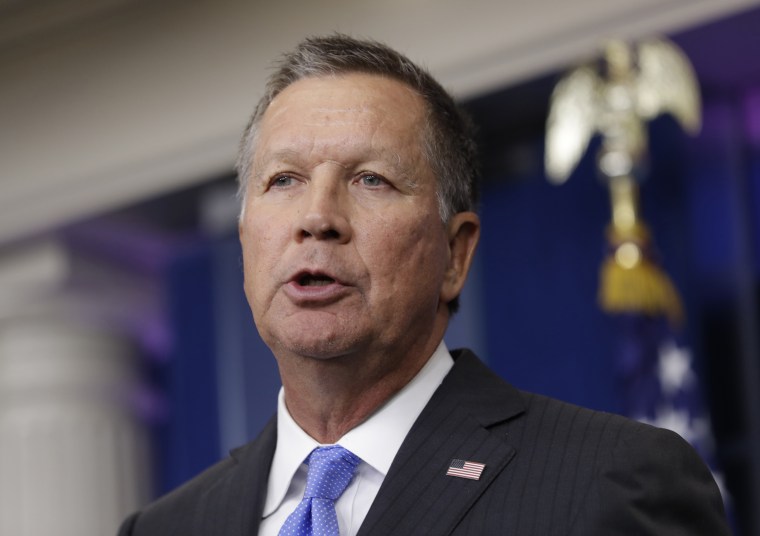While Republicans on Capitol Hill are bullish about repealing and replacing the Affordable Care Act, also known as Obamacare, some Republican governors are more cautious, worried about the practical impacts of replacing the law.
Nine of those governors in town for President-elect Donald Trump's inauguration met with top Republicans in Congress responsible for replacing the health care law to relay those concerns.
“People talked matter of factly but with great concern,” said Sen. Bill Cassidy, R-La, who attended the meeting.
He summed up the tenor of the meeting this way: “People are better because of this; let’s get this right,” referring to the expanded insurance coverage resulting from the Affordable Care Act.
The ACA has covered an additional 20 million people, and governors are hearing from their residents, fearful of losing coverage with Republican efforts to repeal Obamacare.
“There’s a variety of concerns that I picked up on,” said Sen. Orrin Hatch, R-Utah, who heads Senate Finance Committee responsible for writing much of the health care repeal and replace legislation.
House and and Senate Republicans passed the first step in repealing Obamacare last week.
Ohio Gov. John Kasich has touted his state’s expansion of coverage to one million people so far through either the health insurance exchanges or the expansion of Medicaid. He wrote a six-page letter to House and Senate leaders Wednesday urging leaders to keep components of the law and provided ways to improve it.
“Ohioans who became eligible for coverage through the expansion report that it was easier for them to keep or find work, and most reported better health and financial security as a result of obtaining coverage,” Kasich wrote in the email.
“There are ways in which you can make sure there are ways people do not lose their health care,” Kasich told reporters before the meeting.
The nine governors, all Republican, who sat for the two hour meeting, hailed from a variety of states, including Rick Scott of Florida, Butch Otter of Idaho, Rick Snyder of Michigan, Gary Herbert of Utah, Terry Branstad of Iowa and Greg Abbott of Texas.
Half of the governors at the meeting expanded Medicaid coverage in their state, which is a tricky topic for Republicans in Congress who are reluctant keep the expansion.
Arkansas Gov. Asa Hutchinson told reporters after the meeting that he wants to make sure those states aren’t “dismissed.”
“Give us the Medicaid dollars that we’re receiving now; we can manage it,” he said.
But Republicans have given no guarantee on the future of Medicaid. Ideas that have been proposed include giving states the money in block grants to spend their own or to put caps on the number of people who can receive it. But Republicans agree that there’s no consensus on how to move forward.
Sen. Rob Portman, R-Ohio, said refused to commit if Republicans in Congress would provide current levels of funding for Medicaid.
“I think so,” he said when asked how Republicans would respond to such a request. But he noted that only 17 Republican senators come from states that expanded Medicare, insinuating that it could be a tough sell.
Sen. John Cornyn, R-Texas, said he heard the governors’ worries.
“We’re all concerned, but it ain’t gonna happen,” he said of people losing health coverage.

